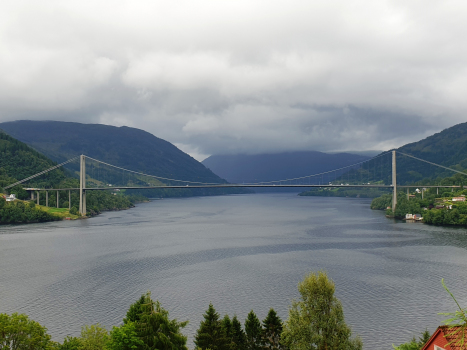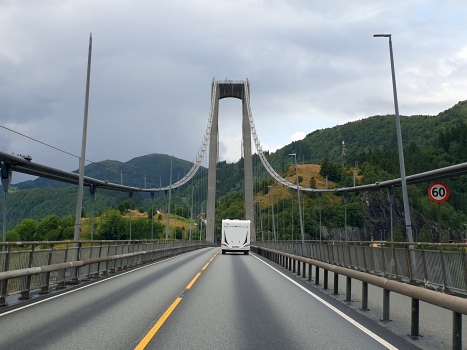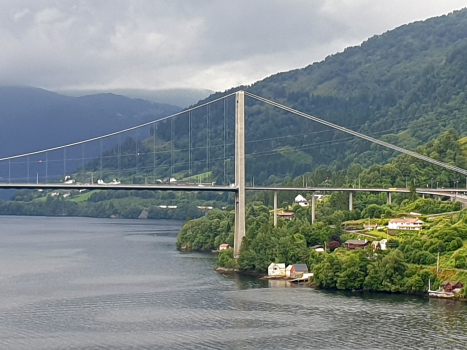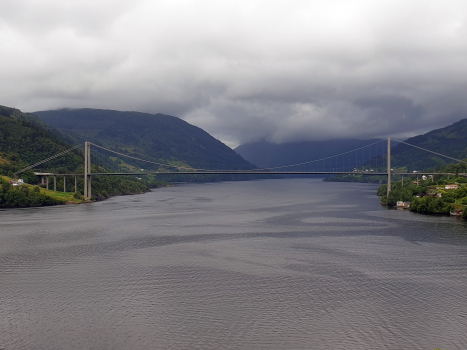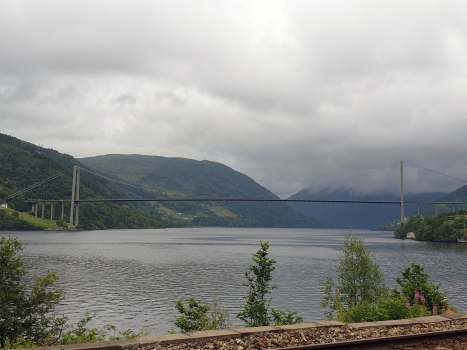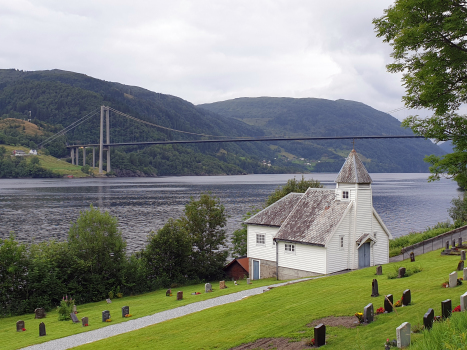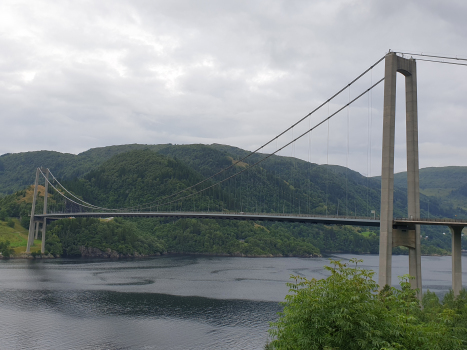General Information
| Name in local language: | Osterøybrua |
|---|---|
| Other name(s): | Kvisti Suspension Bridge |
| Completion: | 3 October 1997 |
| Status: | in use |
Project Type
| Structure: |
Single-span two-tower suspension bridge |
|---|---|
| Function / usage: |
Road bridge |
| Material: |
Steel bridge |
| Support conditions: |
for registered users |
| Material: |
Structurae Plus/Pro - Subscribe Now! Structurae Plus/Pro - Subscribe Now! |
| Secondary structure(s): |
Structurae Plus/Pro - Subscribe Now! |
Location
| Location: |
Tunes, Vestland, Norway |
|---|---|
| Crosses: |
|
| Location description: |
Connects the island of Osterøy with the mainland |
| Coordinates: | 60° 25' 32.36" N 5° 32' 10.01" E |
Technical Information
Dimensions
| main span | 595 m | |
| total length | 917 m | |
| number of spans | 8 | |
| pylons | pylon height | 121.7 m |
| number | 2 |
Materials
| deck |
steel
|
|---|---|
| piers |
reinforced concrete
|
| pylons |
reinforced concrete
|
| abutments |
reinforced concrete
|
Excerpt from Wikipedia
The Osterøy Bridge (Norwegian:Osterøybrua) is a suspension bridge in Hordaland county, Norway. The bridge connects the Kvisti farm area on the island of Osterøy with the Herland farm area on the mainland east of the city of Bergen. The bridge is the third largest suspension bridge in Norway. It is part of Norwegian County Road 566 (Fylkesvei 566).
The Osterøy Bridge is a 1,065-metre (3,494 ft) long suspension bridge that has a main span of 595 metres (1,952 ft). There are 8 spans, and none of the piers are in the water, just on land. There is 53 metres (174 ft) of clearance below the bridge. The two suspension towers are each 121.5 metres (399 ft) high. The bridge was completed on 3 October 1997 and cost about 308 million kr. The bridge was designed by the structural engineering firm Aas-Jakobsen.
It was put into service 28 years after the first plans for a connection between Osterøy and Bergen were prepared. It was opened for traffic by Sissel Rønbeck, the Norwegian Minister of Transport and Communications. The bridge was built to withstand quite strong winds. Experts have indicated that the bridge should be capable of surviving an extreme storm. The bridge is tuned so that its greatest oscillation occurs when the wind is about 10 metres per second (22 mph) such as a light breeze.
Text imported from Wikipedia article "Osterøy Bridge" and modified on July 23, 2019 according to the CC-BY-SA 4.0 International license.
Participants
Relevant Web Sites
- About this
data sheet - Structure-ID
20007714 - Published on:
10/01/2003 - Last updated on:
14/01/2024

